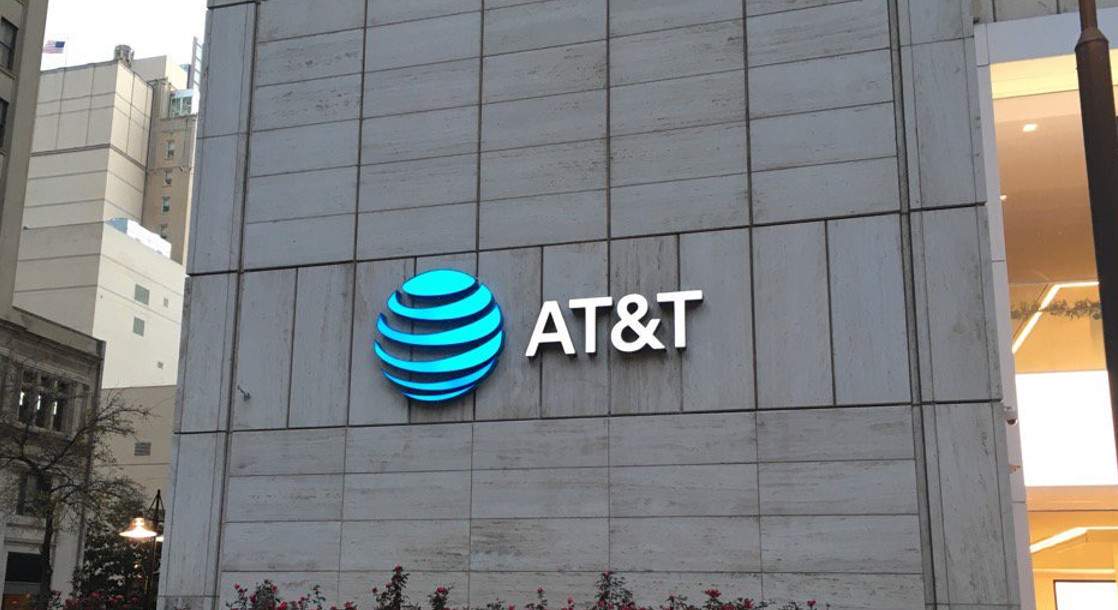If all publicity is good publicity, then AT&T has had a runaway week. Last weekend reports broke of the telecom behemoth’s plan to purchase Time Warner; not the now-defunct cable company (a fact which confused Congress yesterday), but the multi-platform media giant which owns Warner Bros., HBO, CNN, Turner Broadcasting, and DC Comics (among other digital and foreign investments). The proposed $85.4 billion acquisition would put all of those global content engines for news, entertainment, and sports under the control of the nation’s largest telecommunications service provider, which in addition to its massive wireless and landline networks sells broadband and television access (including recently purchased satellite broadcaster DirectTV). An avalanche of speculation has ensued over how this would impact consumers, and whether regulators at the Federal Communications Commission and the Department of Justice will even grant their seals of approval for the colossal merger.
AT&T’s Creepy Grasps at Profit and Power
The CEOs of both Time Warner and AT&T are making the rounds with news outlets to defend the deal as a way of customizing and delivering content at a lower cost to increasingly mobile customers, starting with a premium channel bundle for digital screens called DirectTV Now. Yet the merger has attracted fervent criticism from the populist left and right, with both Bernie Sanders and Donald Trump condemning the move as a dangerous consolidation of news media, as well as more reserved skepticism from moderates like Hillary Clinton and running mate Tim Kaine. Others like USA Today’s editorial board say it’s a desperate attempt of a business losing its competitive advantage to prop itself up with in-demand properties, but one which will have little practical impact on consumers; comparing it to the widely maligned 2010 merger of Comcast and NBC Universal, which they argue didn’t result in feared consequences of higher prices or favored NBC Universal content forced upon Comcast customers. Others say that the promised benefits of the Comcast merger, like lower rates or more innovative content, didn’t ultimately materialize either.
However privacy activists are far more judgmental of AT&T’s gambit: Jeffrey Chester, director of the Center of Digital Democracy, told the Daily Beast this week that “AT&T is going to become much more powerful in your daily life, and based on data collection will make a host of decisions on how to charge more, better sell information to junk food companies, pharmaceutical manufacturers, credit card companies, and with Bugs Bunny and a host of other popular Time Warner brands, AT&T is going to be better positioned to lure you to buy its service and begin to collect huge amounts of data in your TV, on your mobile device, what you buy in the store, etc. It’s commercial surveillance.” He added elsewhere that “through the growing capability of mobile phones to follow and geo-target us everywhere we go — the supermarket, while in a car, or even on the street, these new … giants are extending their powerful digital tentacles further into our lives.”
The week’s second development regarding the telco lends significant credibility to such ominous predictions. A timely report from the Daily Beast Tuesday uncovered what is known to AT&T and law enforcement agencies as Project Hemisphere; a for-profit program in which AT&T sells subscriptions to its vast reserves of customer metadata to sheriff and police departments for use in all variety of criminal investigations, ranging from drug crimes to homicides to Medicaid fraud, with no warrants required; all under AT&T’s condition that law enforcement agents keep their use of the program secret. Hemisphere’s technical capabilities echo Chester’s concerns: “[it] searches trillions of call records and analyzes cellular data to determine where a target is located, with whom he speaks and potentially why.” The report adds that “AT&T has a unique power to extraction information from its metadata because it retains so much of it. The company owns more than three-quarters of U.S. landline switches, and the second largest share of the nation’s wireless infrastructure and cell phone towers.” It doesn’t seem far-fetched to infer that AT&T could employ the same strategy of owning huge spans of network pipeline to vacuum up media consumption data just as it apparently does for user geolocation and metadata. Exposed contracts indicate this has been very lucrative so far, with each police department paying AT&T as much as $1 million per year for warrantless user data.
Only time will tell if regulators will intervene and restrict mass media conglomerations like this latest proposition, or whether the needs of big businesses like AT&T will continue to grow markets for the newest hot commodity: information about their own customers.











